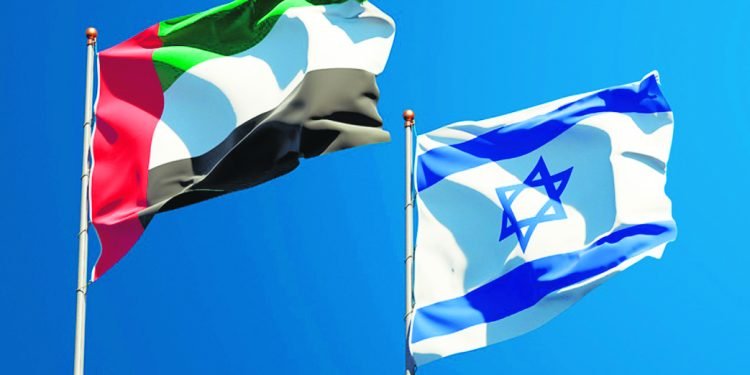Growing tensions in the Red Sea region, fueled by military strikes and attacks on commercial vessels, are prompting shipping companies to seek alternative routes. Recent military actions by the US and Britain in response to Houthi targeting of vessels have heightened concerns for shipments transiting through the strategically vital sea passage, responsible for 12% of global trade annually, valued at approximately one trillion dollars.
One emerging alternative is the Dubai-Haifa “land corridor,” a recently established express land route connecting Dubai’s Jebel Ali Port in the UAE to Israel’s Haifa port. This overland route, traversing through Saudi Arabia and Jordan, has quickly gained significance for Israel, particularly for the import and export of perishable goods and items requiring swift delivery.
During a trial phase in December, ten trucks successfully completed the journey from Dubai to Haifa via this land corridor. The route is facilitated by two shipping companies, Israel’s Trucknet and the UAE’s PureTrans, who signed a cooperation agreement to establish this crucial land bridge.
The land corridor addresses challenges posed by the Red Sea region, where Houthi attacks have disrupted traditional shipping routes. The rerouting of ships to avoid these risks has increased freight transportation costs, making the land corridor an attractive alternative. The route is expected to reduce costs by over 80% compared to current sea freight expenses.
While the land corridor’s primary motivation is financial, driven by the UAE’s normalization with Israel and concerns about potential Houthi attacks, its significance has been further emphasized by ongoing geopolitical developments. Proposed during the Abraham Accords in 2020, the land corridor gained prominence due to the Gaza war and Houthi attacks on vessels bound for Israel.
Israel has positioned the land corridor as complementary to the Suez Canal, aiming to create a faster route without intending to replace the maritime passage. Plans also include the possibility of connecting the network to Egyptian ports on the Mediterranean, facilitating routes to Europe.
Analysts believe that the land corridor not only serves economic interests but also aims to reshape the political and economic dynamics of the Middle East in Israel’s favor. Despite potential benefits for participating Gulf states, Israel stands to be the primary beneficiary, integrating into Gulf economies and altering regional maps.
While the land corridor offers advantages such as faster transit times, reducing the sea route’s duration by 7-10 days, it is unlikely to surpass the practical and economic significance of the Suez Canal. The need for a sea transport corridor, especially for the transport of oil, gas, and large cargo volumes, ensures the continued importance of the Red Sea and the Suez Canal.
Economic analysts confirm that the Dubai-Haifa corridor aims to cut costs and duration for goods transport, particularly amid the Red Sea crisis. With shipping companies avoiding the Red Sea due to increased costs and longer journeys, the land corridor emerges as a swift and cost-effective solution for cargo transport between the UAE and Israel.
As tensions persist in the Red Sea region, the Dubai-Haifa land corridor represents a strategic response to challenges, offering a reliable and efficient route for goods transport in a rapidly evolving geopolitical landscape.























